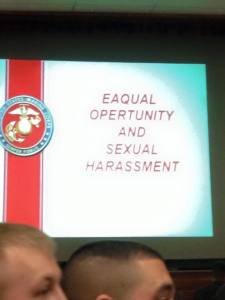Sgt. Maj. of the Army Ray Chandler announced this week that senior enlisted personnel would be rated on their ability to police online social media activity, in what many are nicknaming the “Facebook bullet” on the non-commissioned officer report (NCOER).
So reports Duffelblog. I’ve always been of the view that there is a little or a lot of truth underlying humor. The truth here is that the military has a problem with social media postings. And so the joke is that part of the media management is to be critical of those who use social media – at times making it criminal, even to the extent of holding a member accountable for what their spouse or family member says online. In my view this may border very closely on affecting a persons constitutional right to speech. I’m well aware that there are limitations on a military members right to speak. So let’s hope we don’t get another report bullet to micromanage. Where is that line. But on to something perhaps more relevant.
The act of laughing at a joke is the result of a two-stage process in the brain, first detecting an incongruity before then resolving it with an expression of mirth. The brain actions involved in understanding humor differ between young boys and girls. These are the conclusions reached by a US-based scientist supported by the Swiss National Science Foundation.
 Court-Martial Trial Practice Blog
Court-Martial Trial Practice Blog


